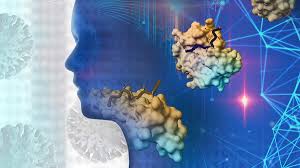Chronic pain does more than affect the body. It has a significant impact on mental health, creating a cycle that is challenging for many to break. Those who deal with conditions like arthritis, fibromyalgia, or even angina often experience higher rates of depression and anxiety. Understanding the connection between chronic pain and mental health can give individuals valuable insights that help with both awareness and management.
How Does Chronic Pain Affect Mental Health?
Living with chronic pain often limits physical activity and disrupts daily routines, causing frustration and emotional exhaustion. Over time, these limitations can affect a person’s mood and overall mental state. For many, the chronic stress of managing pain leads to heightened anxiety. Similarly, depression is common among individuals with chronic pain, as the ongoing discomfort affects sleep, energy, and motivation.
The relationship between chronic pain and mental health is not one-sided. Negative mental health conditions can intensify the perception of pain. Mental fatigue and stress reduce the body’s ability to cope, which creates a challenging feedback loop. For instance, a person with angina may find that the emotional stress of living with the condition worsens their experience of pain. Addressing these interconnected factors requires a holistic approach.
What is Stress and Its Role in Chronic Pain?
Stress is a significant factor that contributes to both physical and mental strain. When the body is under stress, it releases hormones that heighten sensitivity to pain and make relaxation harder to achieve. Stress also disrupts common coping strategies, causing individuals to feel trapped in a cycle of discomfort and worry.
People suffering from stress-related chest pain, such as those who experience angina, may feel heightened anxiety about their health. This anxiety can worsen symptoms, rather than alleviating them. By identifying stress triggers and working to manage them, some individuals are able to gradually find relief. Employing relaxation techniques such as breathing exercises or guided mindfulness can help interrupt this cycle.
What’s The Importance of Careful Management for Someone with Angina?
Managing chronic pain often requires a combination of medical and non-medical strategies. Individuals living with pain are encouraged to seek support from mental health professionals in addition to their physical care providers. Counseling or therapy sessions can help create coping strategies that address both areas.
For individuals experiencing chronic pain related to angina or similar conditions, it is also helpful to educate themselves about their condition. Understanding how specific activities or stressors may contribute to their symptoms can lead to better self-management. By focusing on both physical and mental well-being, individuals have a better chance to reduce the overall impact of their pain.
How to Build a Supportive Community?
Building a sense of connection with others is another effective tool in managing the link between chronic pain and mental health. Peer support groups or networks allow individuals to share their experiences, learn from others, and reduce feelings of isolation. Group discussions often serve as a reminder that no one has to face their struggles alone.
Online communities also provide a valuable source of connection, especially through forums or social media channels focused on chronic pain management. These platforms allow inclusive discussions about topics such as angina and mental health while encouraging members to engage in meaningful conversations. For many, knowing there are others who understand their experiences is a significant source of comfort.
Take Control of Your Well-Being
Chronic pain impacts the body and mind in profound ways, but understanding these effects enables individuals to take informed steps towards improvement. Small, consistent actions like reducing stress, seeking professional guidance, or finding a supportive network can promote positive change over time. By addressing both the physical and emotional aspects of chronic pain, it is possible to improve your overall quality of life.

